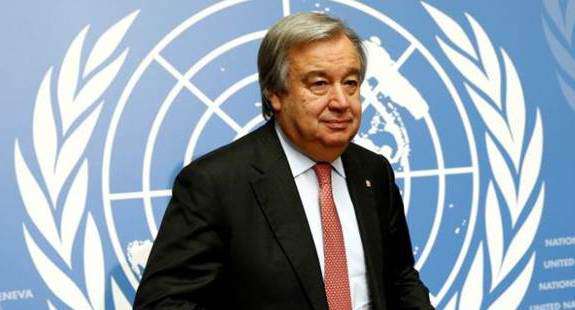United Nations: Secretary General Antonio Guterres has thanked India for its strong and sustained support to peacekeeping as he honoured the memory of the 163 Indian peacekeepers who sacrificed their lives in the line of duty. He also referred to the 125-strong women peacekeepers of the Indian Formed Police Unit deployed with the UN mission in Liberia, the first ever such contingent, calling them an inspiration to all.
“I thank the Government of India for their strong and sustained support to UN peacekeeping. You have indeed given a very strong contribution to global solidarity and to international peace and security,” Guterres said while addressing a tea reception hosted by India at the world body’s headquarters Friday.
Guterres said India has always been one of the largest troop contributing country to peacekeeping operations and currently about 7,700 Indian peacekeepers are deployed around the world, a majority in South Sudan and Congo.
He said there was a need to recognise the enormous importance of women soldiers and women police for making a difference in local communities.
“This is a pioneer initiative from India that needs to be underlined,” he said.
Guterres paid tributes to the 163 peacekeepers from India who sacrificed their lives serving in various peacekeeping missions. He noted that India has lost the highest number of peacekeepers in UN peacekeeping’s 70 year history. Of the 3,737 peacekeepers who have died since 1948, 163 have been from India, which is the highest total from any troop contributing country.
“The total 163 Indian peacekeepers, the highest number of all troop contributing countries, have given their lives for peace. We recognize their service and sacrifice as well as the service and sacrifice of all those from all countries that have fallen in the line of duty,” he said.
Guterres said troop contributing countries have made enormous sacrifices and have troops in the most dangerous locations in the world to protect the lives of citizens of other countries.
